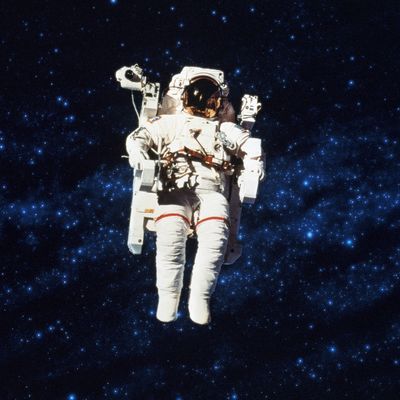
Scientists already know a lot more than they used to about what space can do to the body, thanks in large part to identical twin astronauts Scott and Mark Kelly: Earlier this year, NASA published the earliest results of its twin study, comparing the physical changes found in Scott, who spent a year aboard the International Space Station, to those found in Mark, who was on Earth during the same time period.
The results: Scott returned to his home planet two inches taller, with weaker vision and declining bone formation, among other things. But he also experienced some symptoms that were more neurological in nature, like loss of fine motor skills and slower reaction time. And now, researchers have a better understanding of why that might be the case: A study recently published in the journal Microgravity and highlighted by Christian Jarrett in BPS Research Digest outlines, for the first time, how living in space can change the human brain.
The study authors scanned the brains of 27 astronauts before they embarked on their missions into space — some on two-week space shuttle missions, and others for six-month stints aboard the ISS — and again once they came back. As Jarrett explains:
On average, after experiencing spaceflight, the astronauts brains had shrunk in various frontal and temporal regions and in the cerebellum (a region at the back of the brain involved in coordination, among other things) … Meanwhile, there were also some more localised areas in which brain volume appeared to have increased, on average, including in parts of the parietal lobe, which are involved in motor control. This might reflect changes to brain structure involved in the astronauts’ adaptation to a micro-gravity environment.
As Jarrett notes, the study isn’t without its flaws. Plenty of the astronauts had already been to space, for example, which may have already altered their neurological structures. Still, it’s a cool look at how the brain adjusts to life with less gravity — and a helpful one, assuming we ever make it to Mars.




